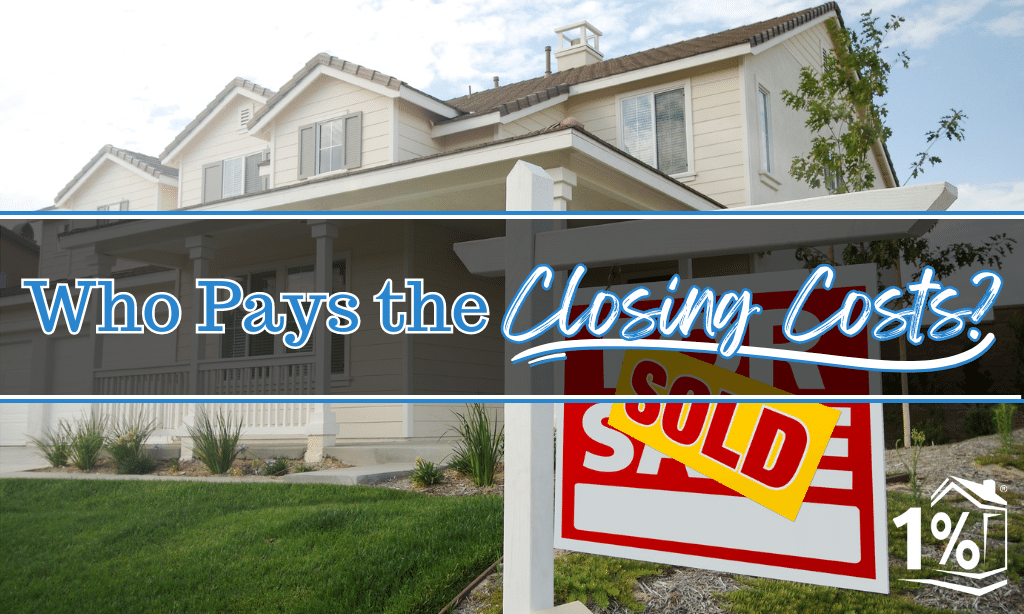When buying or selling a home, it’s natural to focus on the major costs such as down payment or repairs. However, those are not the only expenses to consider. There are additional costs that need to be taken care of before finalizing the deal, known as closing costs.
Closing costs are paid by both the buyer and seller, but the fees and amounts they pay differ. While this may be familiar to those who have experienced a closing, it can be confusing for first-time buyers.
To clarify closing costs and who pays for what, let’s delve deeper into the topic and answer some common questions.
What are closing costs?
Closing costs are expenses that arise at the conclusion of a home sale. They may vary based on the location and type of property being sold. This section will dive into the common closing costs associated with all real estate transactions. We’ll also detail who is accountable for them and the methods of payment.
Buyer costs
When it comes to closing costs for buyers, they are usually paid out of pocket. Typically, the following costs are the buyer’s responsibility:
- Attorney costs: Real estate lawyers charge an hourly rate to review contracts and titles and assist with drafting closing documents. Some tasks may have a fixed fee.
- Home inspection fee: If you opt for a home inspection to assess the property’s condition, you’ll pay that fee at closing.
- Appraisal fee: The bank requests an appraisal to estimate the home’s value during the mortgage application process.
- Underwriting/credit reporting fees: The lender may charge fees for running a credit check and other underwriting tasks.
- Prepaid interest: This is the interest accrued between your closing date and first mortgage payment.
- Homeowners insurance: Lenders may require a homeowners insurance policy with the first premium payment due at closing.
- Title search fee and insurance: A title search and title insurance covers future claims or issues with the home’s title. Lender’s title insurance is typically mandatory, but buyers can also get owner’s title insurance for added protection.
Seller costs
Typically, the following closing costs are the seller’s responsibility, and are usually deducted from the purchase price of the home:
- Realtor commissions: Both the buyer’s and seller’s agents receive compensation for their role in the home sale. Sellers typically pay a percentage of the final purchase price for both commissions. By choosing to sell a home with a discount broker, the seller can save significantly on these costs.
- Title fees: These costs are associated with transferring the home’s title from the seller to the new buyer.
- Homeowners association fees: Any outstanding HOA fees in a community with a homeowner’s association must be paid at closing.
- Property taxes: If there are any unpaid property taxes, the seller must bring them current.
While the buyer’s list of fees looks longer, they generally pay less in closing costs overall. However, these fees only cover closing costs and do not include the down payment, which is a separate expense.

How much can you expect to pay?
Closing costs can vary depending on several factors, such as location and property type. However, there is a general range of what the buyer and seller can expect to pay. Typically, sellers will pay anywhere from 6% to 10% of the home’s purchase price at closing. Buyers can expect to pay between 2% and 5% of the sale price.
For instance, if you were purchasing a $250,000 home, you could expect to pay closing costs ranging from $5,000 to $12,500. On the other hand, if you were the seller, your closing costs would most likely fall between $15,000 and $25,000.
Unfortunately, buyers may not know the exact costs until a few days before closing. They should receive a closing or settlement statement about three business days before the closing date, which itemizes all the costs and the total amount they are expected to pay at the closing table.
Sellers, on the other hand, tend to have a more accurate estimate of the costs. An experienced agent will provide them with a seller’s net sheet, which is an itemized list of their portion of the closing costs deducted from their gross profit on the sale of the home. This gives them a fairly accurate idea of what they will receive from the sale once the final contract is signed.
Impact of Loan Type on Closing Costs
The amount of closing costs a buyer pays is typically based on a percentage of the home’s purchase price, with a range of 2% to 5% for conventional loans. However, the type of mortgage a buyer selects can significantly impact these costs.
Buyers making a small down payment may be subject to additional fees from lenders, which act as insurance against default or delinquency, and are usually due at closing. Government-backed loans, such as VA and USDA loans, come with one-time funding or upfront fees, respectively. FHA loans require borrowers to pay an upfront mortgage insurance premium (MIP) equal to 1.75% of the total loan amount at closing, as well as annual premiums going forward.
For buyers borrowing from a private lender with a down payment of less than 20%, private mortgage insurance (PMI) will be required. Some lenders might ask for an upfront PMI payment at the closing, meaning that an entire year’s premium is paid in one lump sum.

Tips for reducing closing costs
Closing costs can significantly increase the total expenses associated with buying a home. Luckily, there are ways to reduce these costs. Below are some tips to help you save on closing costs:
- Negotiate seller concessions: Buyers can negotiate with sellers to pay some or all of their closing costs. These concessions can be offered in lieu of making home repairs or reducing the asking price. For instance, in some states, sellers are required to pay for title insurance policies for new owners. While these seller concessions are usually included in the initial purchase agreement, they can be added later.
- Explore lender credits: Lenders may offer to pay a portion or all of the buyer’s closing costs. In exchange, the buyer will have a higher interest rate on their loan. This option can save you money upfront but can cost more over time.
- Check for closing cost assistance programs: Various programs are available for low-to-moderate income or first-time homebuyers. These programs provide grants or loans to help cover closing costs. Research and apply to any programs that you may be eligible for to save on closing costs.
The bottom line
Closing costs are an inevitable part of the home buying or selling process, and both parties should be prepared to budget for them. However, it’s important to note that who pays what is negotiable. Moreover, buyers should be mindful of the type of loan they choose, as it can significantly impact their closing costs. By following the tips mentioned in this article, buyers can potentially save themselves some money.
If you’re looking to sell or buy a home in the Chalmette area, reach out to 1 Percent Lists Legacy. Our team of experienced real estate professionals can guide you through the process and help you make the most informed decisions.
Contact us today to learn more about our services and how we can help you achieve your real estate goals.

